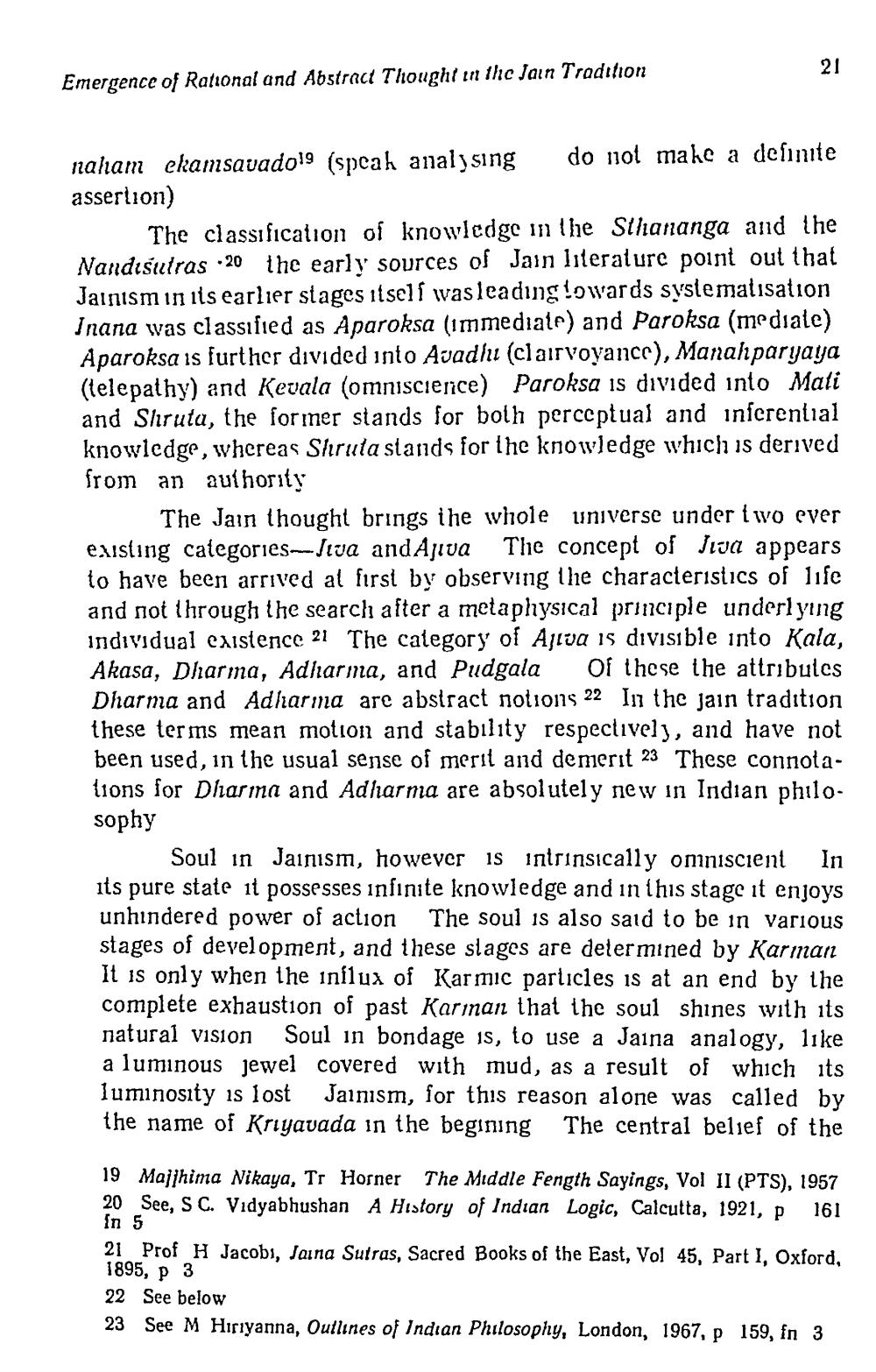________________
21
Emergence of Rational and Abstract Thought in thc Jain Tradition
naham ekamsavado!9 (spcah analysing do not make a definite assertion)
The classification of knowledge in the Sthananga and the Nandisutras -20 the early sources of Jain literature point out that Jainism in its earlier stages itself wasleading towards systematisation Inana was classified as Aparoksa (immediale) and Paroksa (mediale) Aparoksa is further divided into Avadhi (clairvoyance), Manah paryaya (telepathy) and Kevala (omniscience) Paroksa is divided into Mali and Shruta, the former stands for both perceptual and inferential knowledge, whereas Shruta stands for the knowledge which is derived from an authority
The Jain thought brings the whole universe under two ever existing categories - Jiva and Ajiva The concept of Jia appears to have been arrived at first by observing the characteristics of life and not through the search after a metaphysical principle underlying individual existence 21 The category of Ajiva is divisible into Kala, Akasa, Dharma, Adlarma, and Pudgala of these the attributes Dharma and Adharma are abstract notions 22 117 the jain tradition these terms mean motion and stability respectively, and have not been used, in the usual sense of merit and demerit 23 These connotations for Dharma and Adharma are absolutely new in Indian philosophy
Soul in Jainism, however is intrinsically omniscient In its pure state it possesses infinite knowledge and in this stage it enjoys unhindered power of actionThe soul is also said to be in various stages of development, and these stages are determined by Karman It is only when the inilux of Karmic particles is at an end by the complete exhaustion of past Karman that the soul shines with its natural vision Soul in bondage is, to use a Jaina analogy, like a luminous jewel covered with mud, as a result of which its luminosity is lost Jainism, for this reason alone was called by the name of Kriyavada in the begining The central belief of the
19 Majjhima Nikaya, Tr Horner The Middle Fength Sayings, Vol II (PTS), 1957 20 See, SC. Vidyabhushan A History of Indian Logic, Calcutta, 1921, p 161 In 5 21 Prof H Jacobi, Jaina Sutras, Sacred Books of the East, Vol 45, Part I, Oxford, 1895, p 3 22 See below 23 See M Hiriyanna, Outlines of Indian Philosophy, London, 1967, P 159, fn 3




